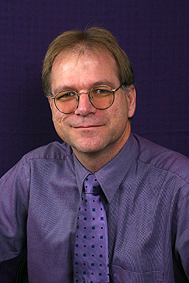Cereals: the origin and future of particulate processing
Dr Grant Campbell, Satake Centre
for Grain Process Engineering, The University of Manchester
Lecture Theatre 3, 10.00am, Wednesday 25th June
Abstract
The grinding of wheat into flour is mankind’s oldest continuously practised
industry and has been described as “the parent of all modern industry”. In
pursuing the fundamental need for efficient milling of wheat, millers and
millwrights of old introduced a practical mastery of several of the fundamental
engineering disciplines: fluid dynamics and aerodynamics for power generation
from water wheels and windmills, mechanical engineering for the transmission of
power via gearing and control mechanisms, and particle handling, breakage and
separation operations. Oliver Evans, American designer of the original highly
automated flour mills, has been described as “the first thoroughgoing plant
engineer”, while Professor Friedrich Kick, author of the first scientific
treatise on flour milling in 1871, also furnished comminution science with one
of its most beloved laws. Storck and Teague (1952) observe “In these two
operations the story of milling… begins: the breaking up of cereal grain seeds,
[and] the removal from the resulting meal of the unwanted portions… The story…
is of how we men have learned to do these tasks better and better, devising
improved tools and new skills as time passed; enlisting the forces of nature to
help us; enlarging our mechanical arts and our mental capacities as we struggled
with the twin problems of increasing the quantity and improving the quality of
our product; adopting new ways of life, forming new social organizations as a
result of a growing dependence on this increasing food supply. There is no other
single thread of development that can be followed so continuously throughout all
[Western] history, and none which bears so constant a cause-and-effect relation
to every phase of our progress in civilization.” As Western civilization enters
the new millennium, this ancient thread continues to develop new features.
Cereals such as wheat are now being called upon to contribute to the energy and
chemical needs of society as well as its food needs,
and we are seeing the emergence of cereal biorefineries aiming to compete with
oil refineries. In contrast with oil, which is a liquid, cereals are particulate
in nature and much more challenging. Process engineers will therefore need to
master the handling of particulate materials, and call on the skill and
experience of flour milling, in order to design and operate efficient and
economically competitive biorefineries. the energy and
chemical needs of society as well as its food needs,
and we are seeing the emergence of cereal biorefineries aiming to compete with
oil refineries. In contrast with oil, which is a liquid, cereals are particulate
in nature and much more challenging. Process engineers will therefore need to
master the handling of particulate materials, and call on the skill and
experience of flour milling, in order to design and operate efficient and
economically competitive biorefineries.
Speaker Biography
Dr Grant Campbell is a Reader in the Satake Centre for Grain Process
Engineering, School of Chemical Engineering and Analytical Science, The
University of Manchester. Research in the Centre focuses on process engineering
aspects of cereals processing for both food and non-food uses. Originally from
New Zealand, Grant did his PhD at Cambridge University on the subject of “The
aeration of bread dough during mixing”, and worked at Campden & Chorleywood Food
Research Association before joining the university in 1995. Grant’s research
interests are in wheat flour milling and fractionation, aeration aspects of
breadmaking and other foods, cereal-based fermentations and extractions, and
process integration for cereal biorefineries. He organised the international
conferences Cereals: Novel Uses and Processes in 1996, Bubbles in Food in 1998
and Bubbles in Food 2: Novelty, Health and Luxury in 2006. He was awarded the
Institution of Chemical Engineer’s Hanson Medal in 2006 for best contribution to
The Chemical Engineer, and its Frank Morton Teaching Excellence medal in 2008.
Sponsors
We are very grateful to all our sponsors for
their contributions to keeping the cost of attending PTF as low
as is feasible.
|



